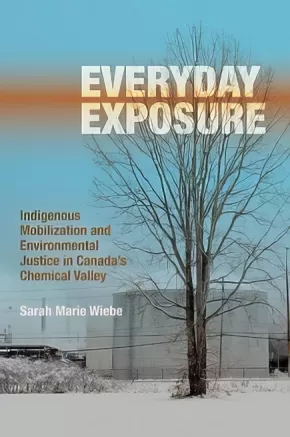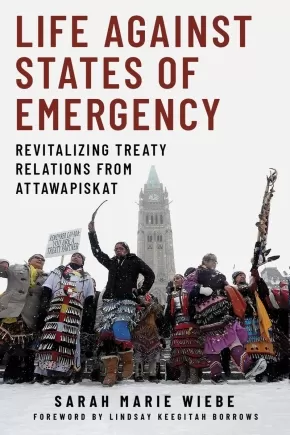Sarah Marie Wiebe
Sarah Marie Wiebe is an assistant professor in the School of Public Administration at the University of Victoria, where she teaches in the Community Development program. She is an adjunct professor in the Department of Political Science at the University of Hawaii, Manoa, a co-founder of the Feminist Environmental Research Network, and the author of Everyday Exposure: Indigenous Mobilization and Environmental Justice in Canada’s Chemical Valley.
Books (2)
Synopsis:
Surrounded by Canada’s densest concentration of chemical manufacturing plants, members of the Aamjiwnaang First Nation express concern about a declining male birth rate and high incidences of miscarriage, asthma, cancer, and cardiovascular illness. Everyday Exposure uncovers the systemic injustices they face as they fight for environmental justice. Exploring the problems that conflicting levels of jurisdiction pose for the creation of effective policy, analyzing clashes between Indigenous and scientific knowledge, and documenting the experiences of Aamjiwnaang residents as they navigate their toxic environment, this book argues that social and political change requires a transformative “sensing policy” approach, one that takes the voices of Indigenous citizens seriously.
Educator Information
This book would be useful for courses in Environmental Studies, Science, Social Justice, and Social Studies.
Additional Information
280 pages | 6.00" x 9.00"
Synopsis:
For six weeks in 2012–13, Attawapiskat chief Theresa Spence undertook a high-profile ceremonial fast to advocate for improved Canadian-Indigenous relations. Life against States of Emergency responds to the central question she asked the Canadian public to consider: What does it mean to be in a treaty relationship today? This incisive research weaves together community-engaged research, Attawapiskat lived experiences, discourse analysis, ecofeminist and Indigenous studies scholarship, art, activism, and storytelling to advance a transformative, future-oriented approach to treaty relations. By centring community voices, Life against States of Emergency seeks to cultivate democratic dialogue about environmental justice.
Reviews
"Wiebe’s book is rich, thoughtful, and wise. It centres Indigenous realities and theories, allowing readers to understand how the past informs the present, why representation matters, and how to move collectively toward an environmentally just future."— Jocelyn Thorpe, director of the Centre for Creative Writing and Oral Culture at the University of Manitoba
Additional Information
312 pages | 6.00" x 9.00" | 19 b&w photos, 1 map | Paperback







